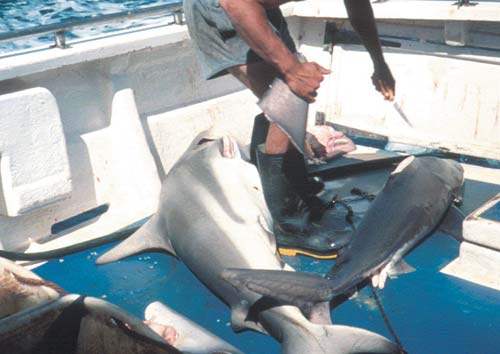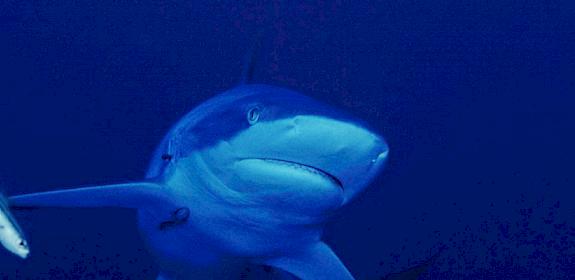White smoke for Whitetip and other sharks at CITES
Bangkok, Thailand, 14th March 2013—Earlier decisions to adopt proposals to include shark species threatened by overharvesting for their fins and meat within CITES (the Convention on International Trade in Endangered Species of Wild Fauna and Flora) were accepted today during the final plenary wrap up session of the conference. Likewise, the Manta Rays were also formally adopted into the CITES Appenices.

“This is an historic day for marine conservation,” said Glenn Sant, TRAFFIC’s Marine Programme Leader.
“Sharks populations in freefall have been thrown a lifeline today—CITES has finally listened to the scientists.”
The plenary is intended to rubber stamp decisions taken earlier during the meeting, but does allow for debate to reopen, usually when there have been close votes when earlier decisions were taken.
As widely predicted, Japan called for a reopening of the debate on the Oceanic Whitetip, the first of the shark species proposals to be considered. However, they narrowly failed to reach the necessary number of votes for the debate to reopen. It followed a period of considerable confusion about whether proper rules had been followed to allow the debate to take place.
Following the failure by Japan to reopen the debate on Oceanic Whitetip, a similar attempt was made to reopen the debates for the hammerhead shark species, but this also failed. There was no attempt to reopen the debate on the Porbeagle shark.
Management through CITES is vital for the responsible management, trade and consumption of sharks believes TRAFFIC.
“This is far too important an issue for politics to intervene; we’re talking about the very survival of some species and the protection of the livelihoods of shark fishers.”
Global catches of sharks are in excess of 800,000 tonnes per year, and the fin trade alone is worth more than USD480 million per year.
Meanwhile, populations of some of the shark species caught have declined by in excess of 90% to supply the trade.
“Some commercially important shark populations are on the verge of total collapse—if that’s not a good reason to take shark fishing responsibility then tell me what is,” said Sant.
The proposal to list Manta rays was also adopted without a call to reopen the debate at the meeting.
Following the shark discussions, China expressed its concern over the difficulty in implementing trade regulations through CITES, citing concerns over identification of the shark species concerned, and called for assistance from other countries to help ensure enforcement of the new measures. They also asked for exporting countries to ensure that illegal products do not enter into the market place.



